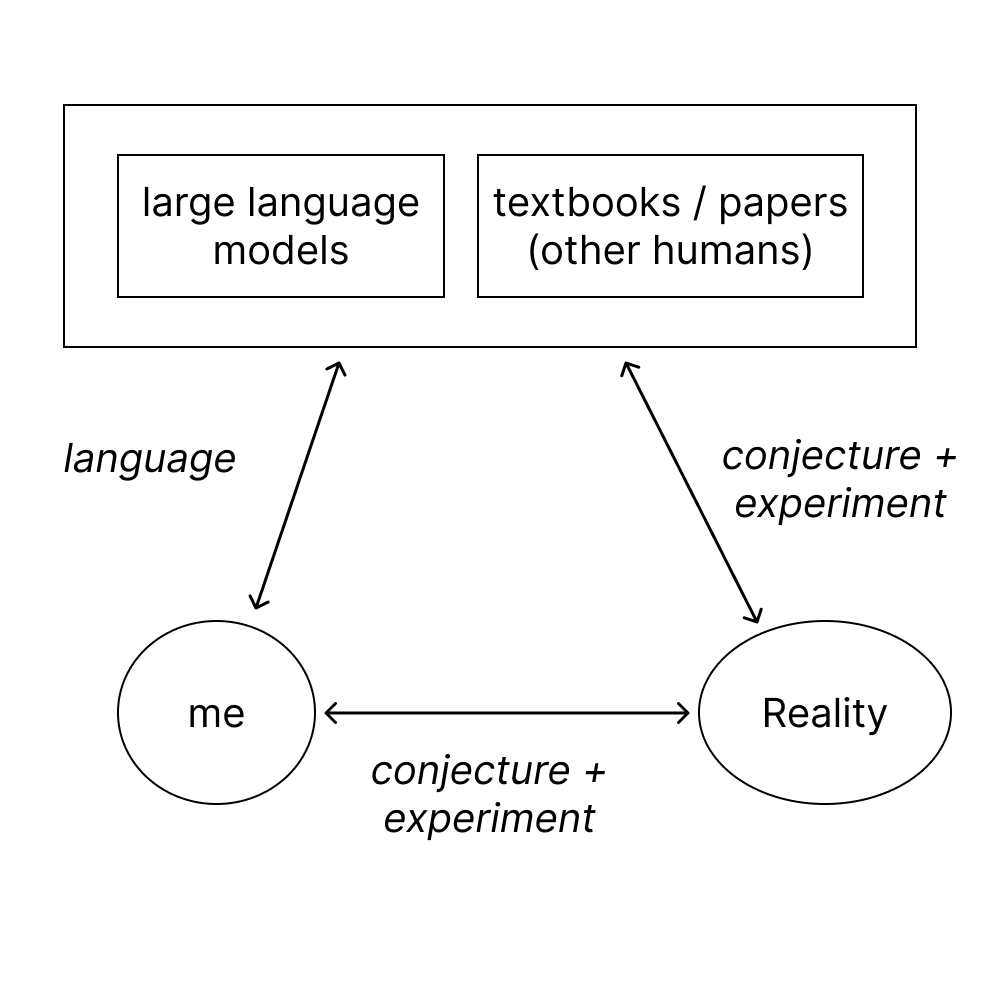As I start to rely more and more on large language models for learning new things, I can't help but feel hesitation when it comes to treating these models as an authoritative source.
I thought that this was due to the nascency of the technology and that I just needed to wait a year or two before I can give the same credence to their outputs as I would a Wikipedia article. After some more thought I realized that this issue wasn't just between large language models and myself, but between myself and knowledge more generally.
I was also guilty of the very same deference to authority when it came to professors, textbooks, and other academic literature. The real problem wasn't that I was looking for an authoritative source of knowledge in the wrong place, but that I was looking for an authoritative source of knowledge in the first place.
In order to learn something viscerally, one's feedback must come directly from Reality itself, namely nature and free markets. This is done via the creative process of conjecture and experimentation. Such an intimate relationship between a person and their environment cannot presently be outsourced to another. As any external communication (eg. written natural language) automatically subjects the raw information to lossy compression and therefore necessarily adds some amount of noise to the signal. While our existing forms of communication are definitely "good enough" for practical purposes in a group setting, I still believe that the reason why some individuals can grok things so much more effectively than others is because one way or another they were able to figure it out themselves by creating their own personal conjectures and experiments.

I am reminded of the Royal Society's motto: "Nullius in verba" as well as the plot device: "Deus ex machina", which respectively mean something along the lines of "on the word of no one" and "God from the machine".
< return